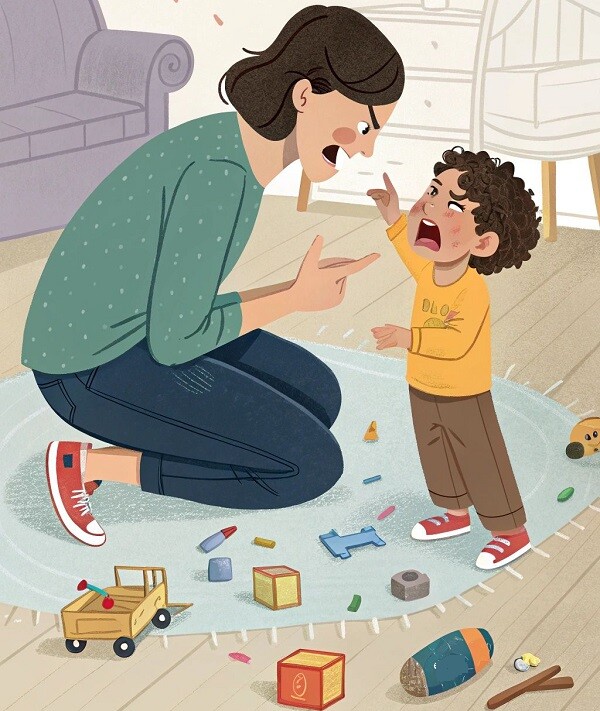Parents should pay attention to these three “advantages” that their children might possess, as they could indicate underlying low self-esteem.


Excessive Humility and Rationality
Children who exhibit excessive humility and rationality may be suppressing their true needs to meet the expectations of adults. Beneath this seemingly pleasant “rationality” lies forced caution, especially in boys. These children often feel pressured by societal biases and parental expectations, leading them to hide their true selves.

For instance, a boy who genuinely loves sunflowers might insist, “I don’t like them.” This humility reflects an internal conflict between true emotions and what the child feels is permissible to express. When children are subjected to misaligned expectations, they may feel unworthy, leading to deep-seated insecurity.
In these “forced” situations, children often yield to adult biases, exacerbating feelings of worthlessness and insecurity. Consequently, they opt to endure and suppress their genuine emotions, which can hinder their psychological development.

Conformity in All Matters
As children grow up, they develop a sense of independence and the desire to make their own decisions.
However, if they always obey adults in everything and never dare to resist, it indicates that they do not truly accept themselves and believe they are incapable of making the right choices. They abide by the mantra, “I can only listen to my parents.”
A mother shared that her seven-year-old son always waited for her instructions on what to wear, which homework to do first after school, and even whom to play with on weekends.
When asked, “Do you want scrambled eggs with tomatoes or sweet and sour pork for lunch?” the boy was stunned for a while before asking his mother, “Mom, which one do you think I should eat?”
The mother shared, “My son is very obedient; if I tell him to go east, he will never dare to go west.” But behind this apparent compliance lies a lack of self-confidence in decision-making.

As children grow up, they naturally develop a sense of independence and the desire to make their own choices.

Excessive Frugality
While frugality is generally considered a virtue, excessive frugality can have negative consequences. Some children may hesitate to ask their parents for toys or snacks and only buy inexpensive items at the supermarket. Although they appear thrifty, they may be struggling with self-esteem issues.
Young children naturally desire attractive possessions when they see their peers buying them. However, extremely frugal children may have internalized the message from their family that spending money is undesirable or may have experienced repeated rejection when expressing their wishes.

Some children may hesitate to ask their parents for toys or snacks.
This leads them to view not spending money as a form of self-protection, as if they are avoiding burdening their family and risking parental rejection. However, deep down, they feel unworthy of good things, leading to feelings of inferiority and insecurity. While they believe that not expressing their desires or needs avoids conflict or disappointment, it actually increases psychological pressure and insecurity.

Pursuit of Perfection
While it is positive to be motivated for self-improvement, children who cannot accept any flaws or who are constantly on guard may develop deep-seated insecurity.
They often set strict rules for themselves, such as always trying their best, and give up easily when they make a small mistake. This mindset often stems from parents’ exceedingly high expectations.
Worryingly, these children may fear trying new things because they cannot do them perfectly, and they may become despondent when they encounter failure, exacerbating their insecurity.
If parents notice these signs, they should refrain from immediately trying to modify their children’s behavior. Instead, they should first help their children overcome their underlying low self-esteem.
Firstly, teach your children to say, “I want.” Of course, this requires repeated encouragement before they can do so confidently.

It is concerning when children are afraid to try new things.
Parents should frequently say, “It’s okay if you want something.” Gradually, children will learn to become more confident and courageous, no longer suppressing themselves to please others.
Secondly, allow your children to say “No.” For example, if an older child always gives their snacks to a younger sibling, parents should not immediately praise them for being obedient. Instead, ask them first: “This is yours; if you don’t want to give it away, you can refuse.”
Additionally, it is more beneficial to let children make mistakes in minor matters and learn from them than to simply advise them to “be brave.” It is crucial that parents do not emphasize “wisdom” as a badge of honor.
When a child gives up a toy, refrain from saying, “Look how humble my child is.”
When children believe that “I don’t need to please anyone to be loved,” they will become increasingly confident and courageous enough to be themselves. With this newfound energy, they will learn to share, be humble, and practice healthy frugality.


































